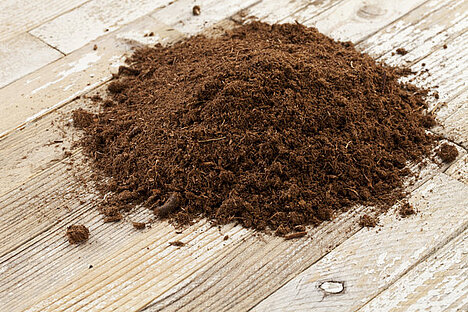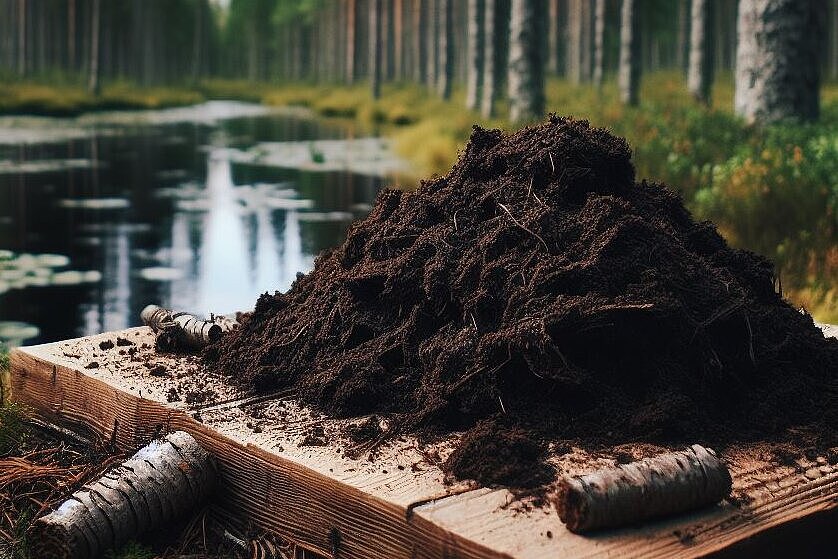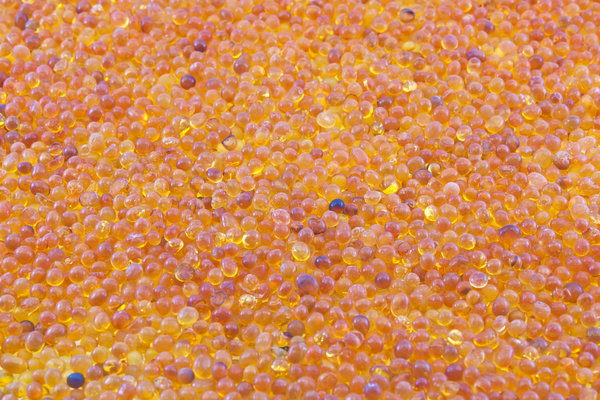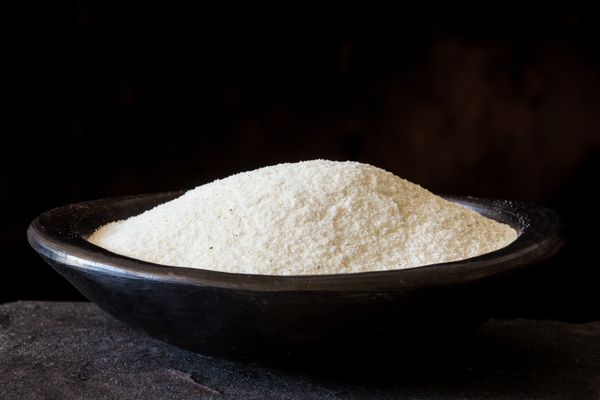Moor

The properties of moor
Moor contains many organic substances such as humic acids, tannins, flavonoids and essential oils. These have an anti-inflammatory, antibacterial, antiviral and antioxidant effect. Peat also contains minerals, trace elements and vitamins that are important for your dog's health. Moor can be used both internally and externally. Internally, it can promote digestion, stimulate the metabolism, strengthen the immune system and support detoxification. Externally, it can help with skin problems, wounds, eczema and joint pain.
The benefits of peat for dogs
Moor can help your dog with or prevent various ailments. Here are some examples:
- Moor can improve intestinal flora and relieve diarrhea or constipation. It binds toxins and heavy metals in the intestines and promotes their elimination.
- Moor can stimulate blood formation and improve the oxygen supply to the cells. This can increase your dog's performance and well-being.
- Moor can make the coat shinier and the skin more supple. It is effective against dandruff, itching and parasite infestation.
- Moor can accelerate wound healing and prevent infections. It forms a protective film on the skin and promotes tissue regeneration.
- Moor can lubricate and relieve the joints. It is effective against arthrosis, rheumatism and other joint diseases.
The disadvantages of moor for dogs
Moor is a natural product that can have different compositions depending on its origin. You should therefore always pay attention to the quality and origin of the peat you give your dog. There are some possible disadvantages or side effects of bog for dogs:
- Bog can cause allergic reactions if your dog is sensitive to certain ingredients. Watch out for symptoms such as skin rash, itching or difficulty breathing.
- Moor can lead to an overdose of minerals or trace elements if your dog is already getting enough of them in its food. This can lead to symptoms of poisoning or kidney problems.
- Peat can influence the effect of medication if your dog is taking any. It can alter the absorption or breakdown of medication in the body. Therefore, always consult your vet before giving your dog moor.
How to give your dog moor
There are various ways in which you can give your dog moor. For example, you can mix moor pellets or powder into his food or offer him a moor tea. You can also give him a moor bath or apply a moor compress. The dosage depends on your dog's size, weight and state of health. As a rule of thumb: 1 gram of peat per kilogram of body weight per day. However, you should always follow the manufacturer's or your vet's instructions.
Moor is a natural ingredient that can have many benefits for your dog's health. It can help with or prevent various ailments. However, you should always pay attention to the quality and origin of the peat and observe the correct dosage. Peat is not a miracle cure, but a supplement to a balanced diet and a healthy lifestyle for your dog.
If you notice any signs of hypersensitivity or poisoning in your dog, you should see your vet immediately. We are not a substitute for a vet, but we try to be as accurate as possible. Every dog reacts differently and we recommend you get a second opinion or consult your vet if in doubt.
Stay healthy and take good care of your four-legged friend!😊
Similar to Moor
The benefits of peat for dogs Peat has a number of positive properties that can have a beneficial effect on the health and well-being of dogs. Here are some of them: Peat contains many minerals,...
Compost fertilizer is the result of a natural decomposition process of organic materials such as kitchen and garden waste. Through the activity of microorganisms, fungi and worms, this waste is...
Silica is a collective term for various sediments and minerals that have a high silicon content. Silicon is an important building block for connective tissue, bones and cartilage in the body. It is...
Mineral earth is a collective term for various types of earth that have a high proportion of minerals and trace elements. The best known are healing earth, bentonite and zeolite. These clays are...



